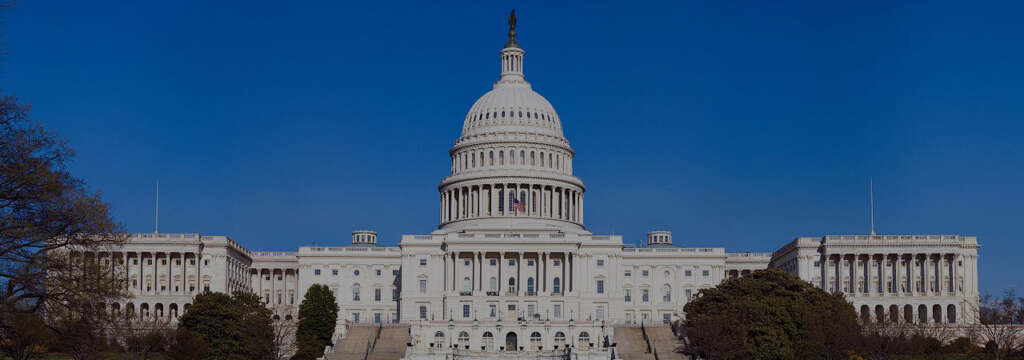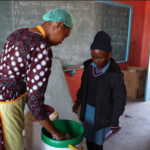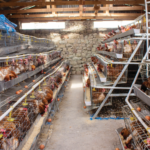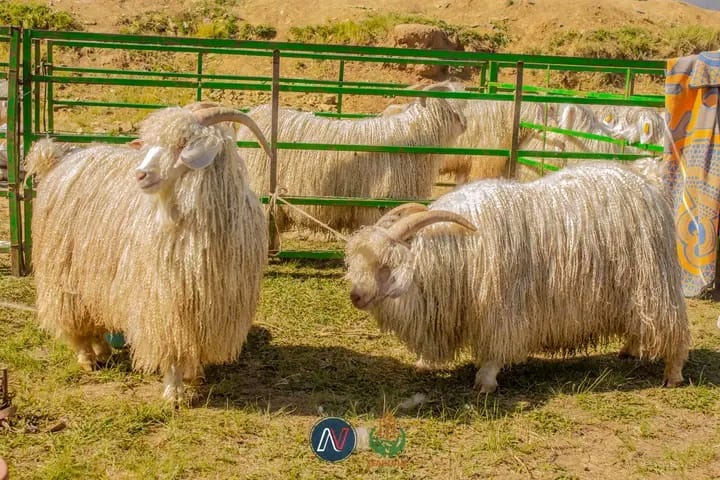Lerato Matheka
The El Niño-induced drought has severely impacted harvests in Lesotho, resulting in local farmers struggling to meet the demands of the Catholic Relief Services (CRS) school feeding project in mountainous areas. This program, known as Bokamoso Ba Bana (3B), operates in Mokhotlong, Thaba-Tseka, and Semonkong, regions identified as highly vulnerable to food insecurity. CRS ensures that children in these areas receive nutritious meals, crucial for their development and well-being.
Despite the recent poor harvests, CRS remains committed to supporting the local market. Seahlolo’s Journalist Libuseng Molato reached out to CRS following concerns raised by farmers about the impact of the drought on their ability to supply food for the school feeding program.
Seahlolo: How has the El Niño-induced drought impacted CRS’s ability to provide adequate food for school children?
CRS: Delivering healthy meals promotes the adoption of correct dietary practices and addresses malnutrition. CRS is committed to supporting and prioritizing the Lesotho local market. The Bokamoso Ba Bana (3B) project prioritizes local farmers and stimulates local agriculture and the economy through the procurement of food from local small-scale producers. However, due to the El Niño drought, the past season’s harvests have been significantly affected, and most farmers have failed to meet the supply demands. In such cases, the 3B project may source commodities regionally as an interim measure until the local market stabilizes. Despite the challenges, we continue to distribute donated commodities from the United States Department of Agriculture (USDA) to 228 schools, including maize meal, pinto beans, corn-soy blend (super cereal plus), and vegetable oil. This ensures that learners continue to receive meals despite the drought.
Seahlolo: How is CRS addressing the low supply of eggs, which are part of the school feeding program, given the recent issues raised by the poultry industry?
CRS: The challenges in the local egg market have strained the procurement and distribution of eggs to schools in Lesotho. To address this, we are providing beans to schools that do not receive eggs. This substitution ensures that learners continue to consume protein, an essential component of their diet. We intend to continue working with local egg suppliers until the market stabilizes, ensuring the quality of nutritious meals is maintained.
Seahlolo: Why is it important for farmers to increase food production, especially in light of the current food security challenges?
CRS: Food security is crucial for reducing incidents of hunger, which in turn helps to improve education and literacy outcomes. A food-secure society is more self-reliant and productive. Increased food production will help the 3B project achieve its goal of improving the education and literacy outcomes of 36,557 targeted learners in the districts of Semonkong, Thaba-Tseka, and Mokhotlong. By supporting local farmers and promoting food security, we aim to ensure that children receive the nutrition they need to thrive.
Seahlolo: What steps is CRS taking to support local farmers and promote food security?
CRS: Our priorities include supporting the local market in Lesotho and advancing the homegrown school feeding program. We continue to work closely with local farmers, encouraging them to increase food production despite the challenges posed by the drought. By doing so, we aim to create a more sustainable and self-reliant agricultural sector in Lesotho, ultimately improving the lives and livelihoods of Basotho.
Seahlolo: Can you explain the broader impact of food security on the community and education?
CRS: Food security helps reduce incidents of hunger, which directly impacts educational outcomes. Well-nourished children are better able to concentrate, learn, and perform academically. This, in turn, leads to higher literacy rates and a more educated and capable workforce. By ensuring food security, we are investing in the future of Lesotho, creating a foundation for long-term social and economic development.
Summary
- The El Niño-induced drought has severely impacted harvests in Lesotho, resulting in local farmers struggling to meet the demands of the Catholic Relief Services (CRS) school feeding project in mountainous areas.
- Seahlolo’s Journalist Libuseng Molato reached out to CRS following concerns raised by farmers about the impact of the drought on their ability to supply food for the school feeding program.
- Increased food production will help the 3B project achieve its goal of improving the education and literacy outcomes of 36,557 targeted learners in the districts of Semonkong, Thaba-Tseka, and Mokhotlong.

Your Trusted Source for News and Insights in Lesotho!
At Newsday Media, we are passionate about delivering accurate, timely, and engaging news and multimedia content to our diverse audience. Founded with the vision of revolutionizing the media landscape in Lesotho, we have grown into a leading hybrid media company that blends traditional journalism with innovative digital platforms.










